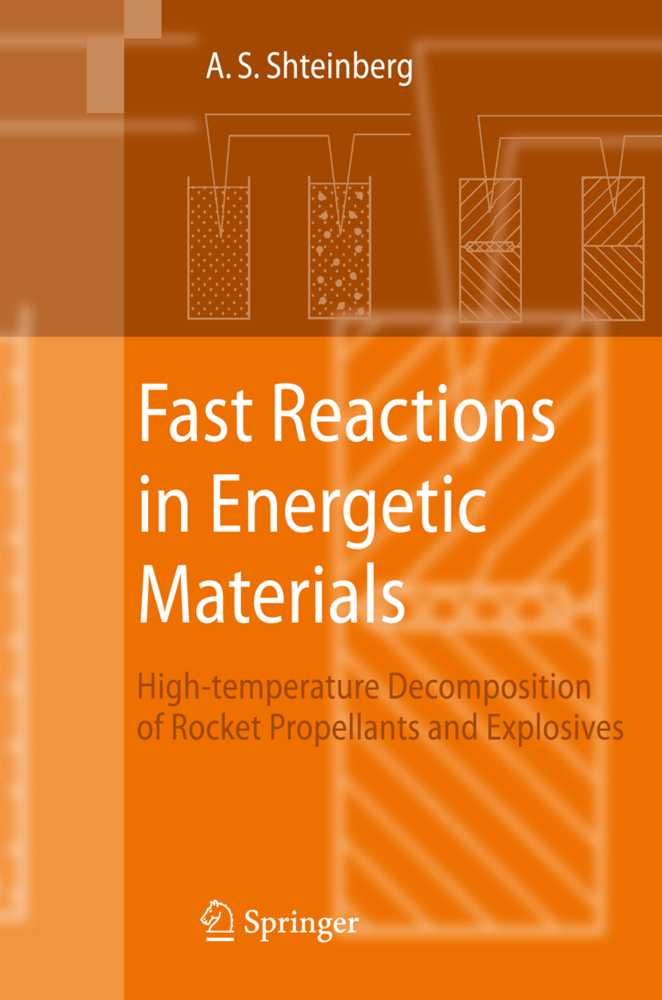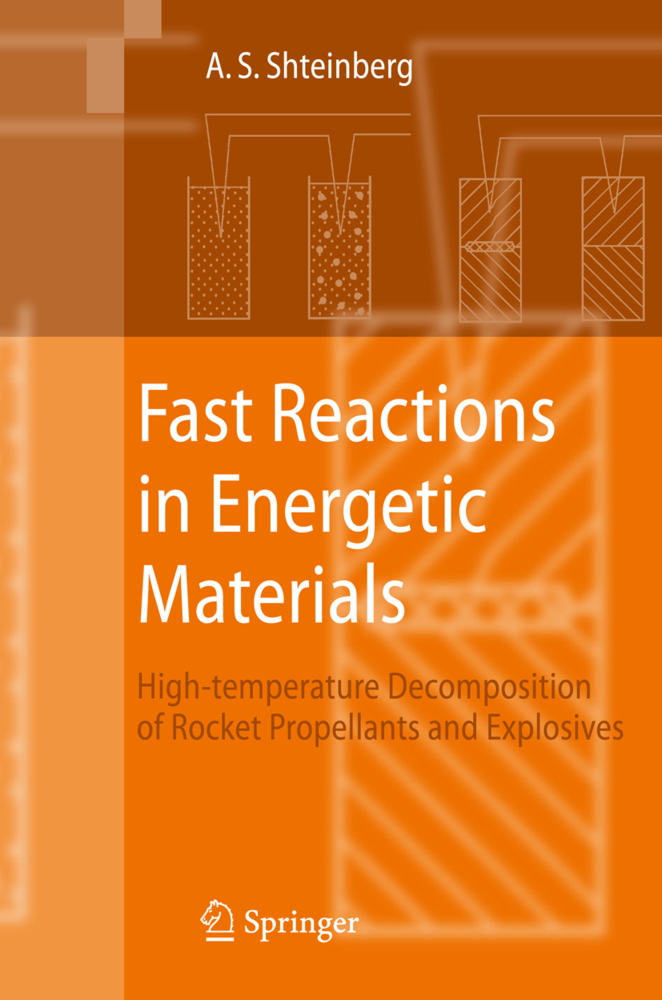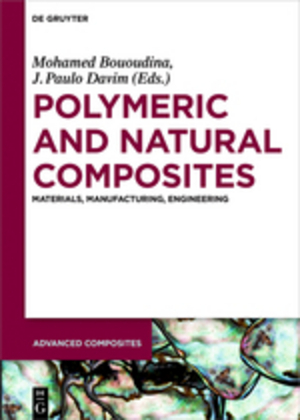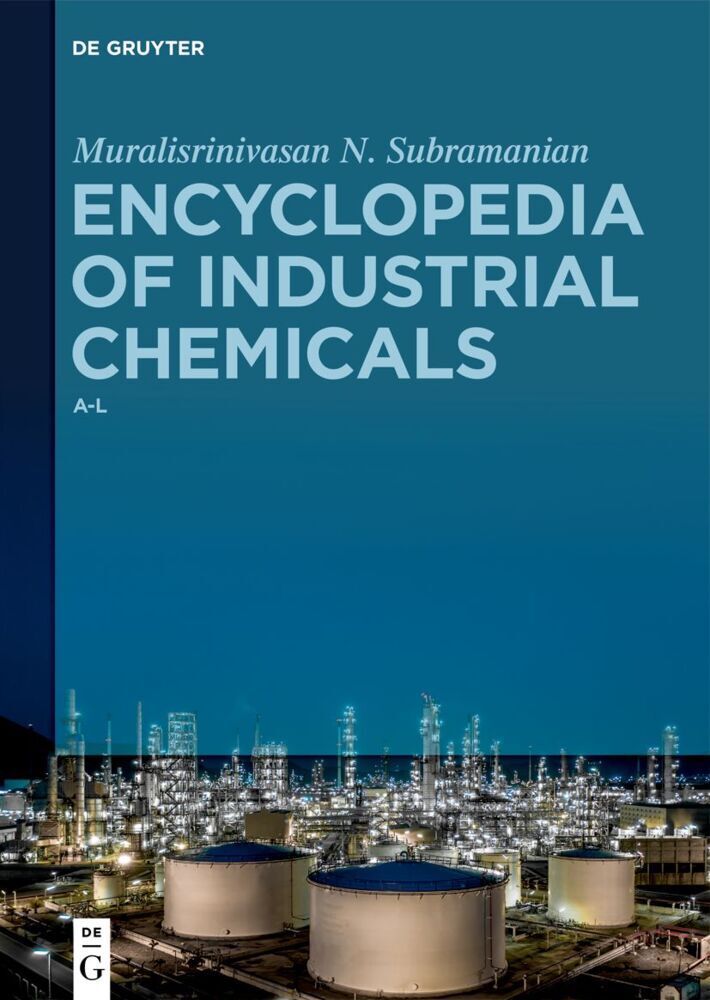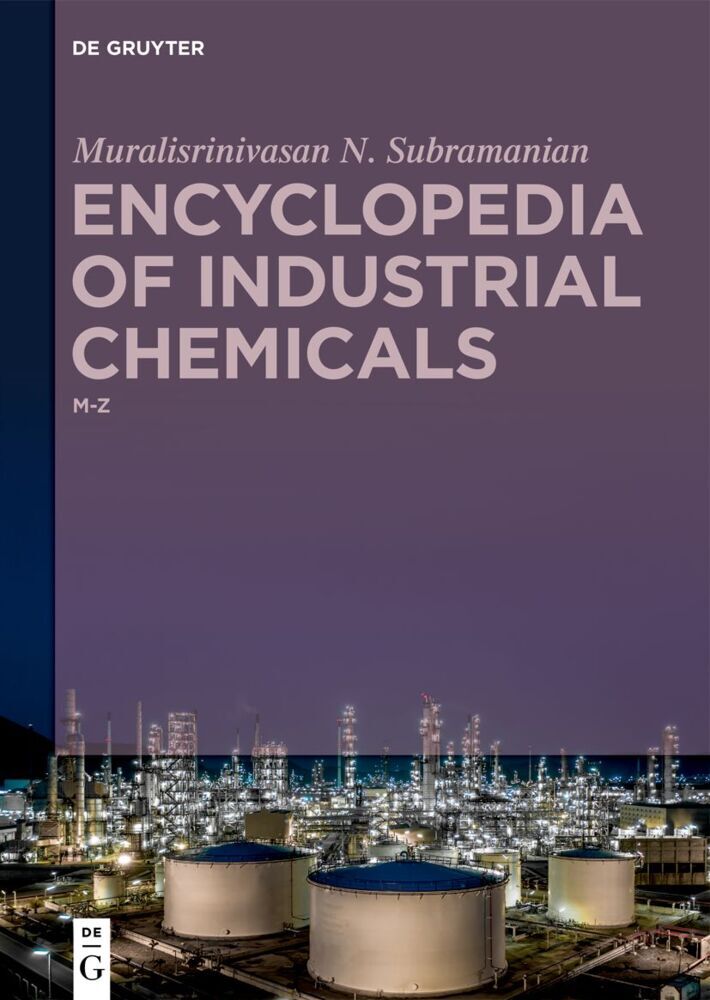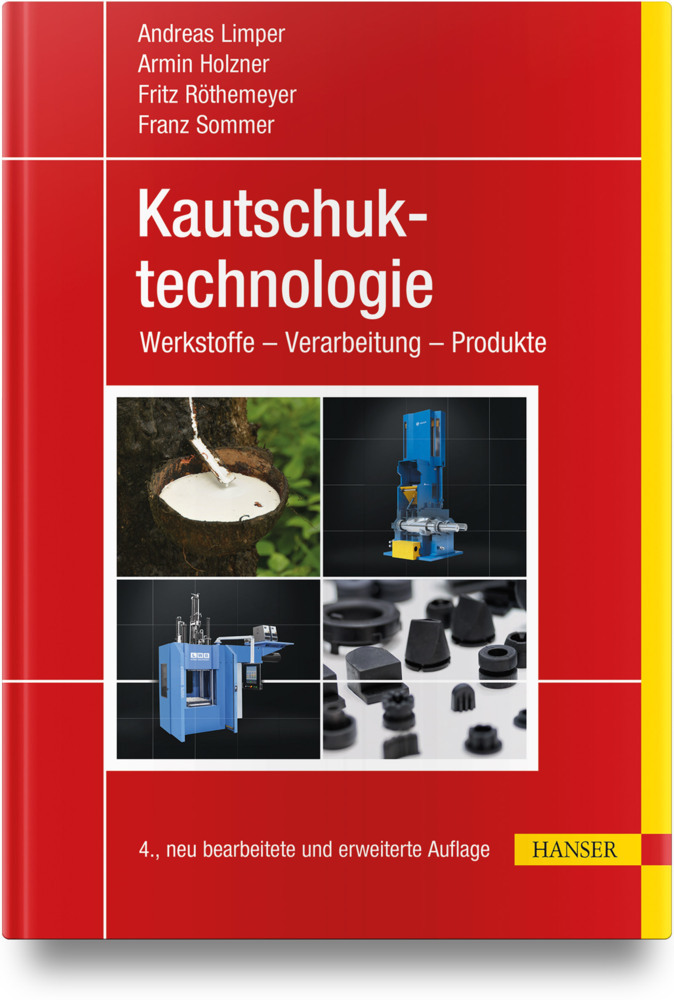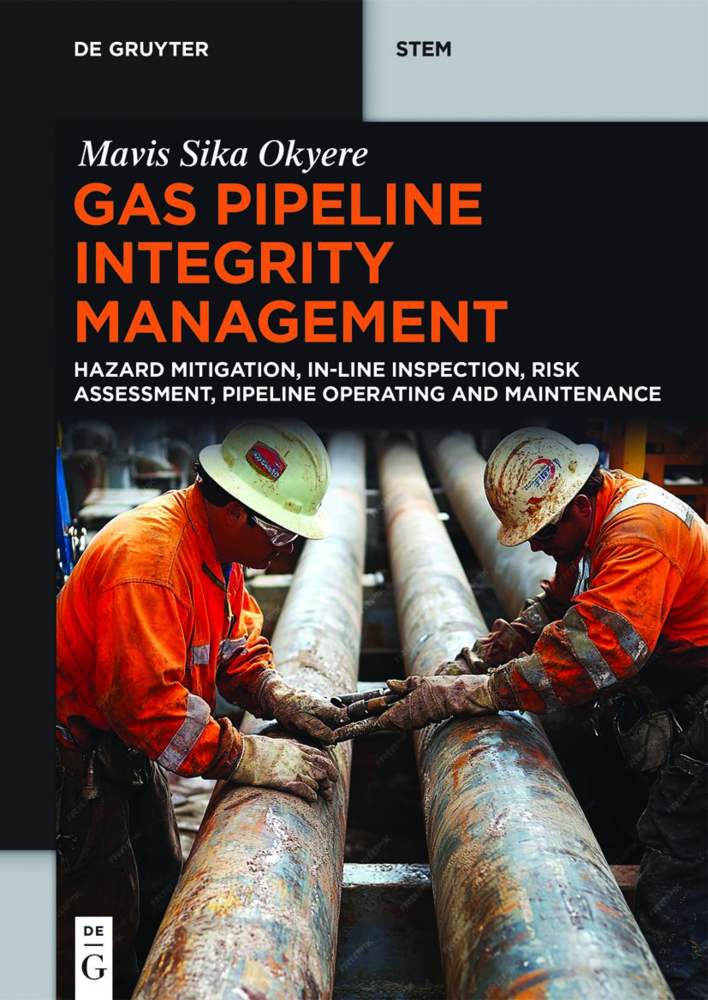Fast Reactions in Energetic Materials
High-Temperature Decomposition of Rocket Propellants and Explosives
Fast Reactions in Energetic Materials
High-Temperature Decomposition of Rocket Propellants and Explosives
Modern energetic materials include explosives, blasting powders, pyrotechnic m- tures and rocket propellants [1, 2]. The study of high-temperature decomposition of condensed phases of propellants and their components (liquid, solid and hybrid) is currently of special importance for the development of space-system engineering [3, 4]. To better understand the burning mechanisms (stationary, nonstationary, - steady) of composite solid propellants and their components, information about the macrokinetics of their high-temperature decomposition is required [5]. To be able to evaluate the ignition parameters and conditions of safe handling of heat-affected explosives, one needs to know the kinetic constants of their high-temperature - composition. The development of new composite solid propellants characterized by high performance characteristics (high burning rates, high thermal stability, stability to intrachamber perturbations, and other aspects) is not possible without quanti- tive data on the high-temperature decomposition of composite solid propellants and their components [6]. The same reasons have resulted in signi?cant theoretical and practical interest in the high-temperature decomposition of components of hybrid propellants. It is known that hybrid propellants have not been used very widely due to the low bu- ing (pyrolysis) rates of the polymer blocks in the combustion chambers of hybrid rocket engines. To increase the burning rates it is necessary to obtain information about their relationships to the corresponding kinetic and thermophysical prop- ties of the fuels.
Methods for the Experimental Study of the Linear Pyrolysis of Condensed Materials
Study of the High-Temperature Decomposition of AP and PMMA by the Linear Pyrolysis Method
Study of the Total Heat of the High-Temperature Linear Pyrolysis of Polymeric Materials as Applied to Burning in Hybrid Rocket Engines
Study of the Initial-Stage Kinetics for High-Temperature Decomposition of Homogeneous Blasting Powders and Composite Solid Propellants by the Method of Ignition Using a Heat-Conducting Block
Study of the Macrokinetics of High-Temperature Decomposition of Condensed Materials Under Spatially Isothermal Heating
Mechanical and Thermal Dilution Methods Used in the Thermographic and Thermogravimetric Analysis of High-Temperature Decomposition of Condensed Materials
Equipment for Studying Kinetics During~Linear~Heating
Application of Modified DTA and TGA to Studies of High-Temperature Decomposition Kinetics of Homogeneous Compounds
Kinetic of Deep High-Temperature Decomposition of Model and Commercial AP-Based Composite Solid Propellants
Theory of Decomposition Macrokinetics and~Thermal Explosion of Volatile Explosives
High-Temperature Decomposition and Thermal Explosion of Liquid Propellant Components: Hydrogen Peroxide and Hydrazine.
Study of Macrokinetics of High-Temperature Decomposition of Condensed Materials Under Spatially Nonisothermal Heating
Theory of the Linear Pyrolysis of Condensed MaterialsMethods for the Experimental Study of the Linear Pyrolysis of Condensed Materials
Study of the High-Temperature Decomposition of AP and PMMA by the Linear Pyrolysis Method
Study of the Total Heat of the High-Temperature Linear Pyrolysis of Polymeric Materials as Applied to Burning in Hybrid Rocket Engines
Study of the Initial-Stage Kinetics for High-Temperature Decomposition of Homogeneous Blasting Powders and Composite Solid Propellants by the Method of Ignition Using a Heat-Conducting Block
Study of the Macrokinetics of High-Temperature Decomposition of Condensed Materials Under Spatially Isothermal Heating
Mechanical and Thermal Dilution Methods Used in the Thermographic and Thermogravimetric Analysis of High-Temperature Decomposition of Condensed Materials
Equipment for Studying Kinetics During~Linear~Heating
Application of Modified DTA and TGA to Studies of High-Temperature Decomposition Kinetics of Homogeneous Compounds
Kinetic of Deep High-Temperature Decomposition of Model and Commercial AP-Based Composite Solid Propellants
Theory of Decomposition Macrokinetics and~Thermal Explosion of Volatile Explosives
High-Temperature Decomposition and Thermal Explosion of Liquid Propellant Components: Hydrogen Peroxide and Hydrazine.
Shteinberg, Alexander S.
Rusanova, Maria
| ISBN | 978-3-642-09767-6 |
|---|---|
| Artikelnummer | 9783642097676 |
| Medientyp | Buch |
| Copyrightjahr | 2010 |
| Verlag | Springer, Berlin |
| Umfang | XIV, 201 Seiten |
| Abbildungen | XIV, 201 p. |
| Sprache | Englisch |

